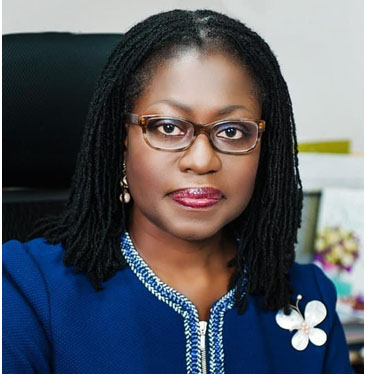Elsie Addo Awadzi
A TOTAL of GH¢27,850,500,963.01 was advanced as loans by commercial banks operating in the country to players in the pharmaceuticals industry as well as the textiles and garments industry from March to December 2020.
The loans, which were critical in the fight against the COVID-19 pandemic, helped to accelerate Ghana’s economic recovery from the initial downturn while also it supported corporates and households in a number of value chains.
Elsie Addo Awadzi, 2nd Deputy Governor of the Bank of Ghana (BoG), who disclosed this, was delivering an address at a gala dinner to mark the 25th anniversary celebration of the FBNBank.
She also said the banking sector’s performance in 2021 to date has remained strong with sustained growth in total assets, deposits, loans, investments, and income, although credit risk remained a concern, which the Bank of Ghana continued to monitor closely as the pandemic rages on.
“We expect banks to continue in their efforts to support a strong recovery of the Ghanaian economy. To this end, we expect banks to significantly increase credit to the private sector, and to offer reasonable and affordable interest rates to their customers.
“We remain concerned about the relatively high lending rates that banks continue to charge their customers, with spreads over and above the Ghana Reference Rate and very high fees, commissions and other costs imposed on customers which lead to the exclusion of many small and medium-sized businesses out of the credit market and by extension, impede their survival and growth.
“As a nation, we lose significant opportunities to grow strong viable brands that can compete with businesses across the African market and beyond if we do not provide mechanisms for financing our small businesses on a consistent and sustainable basis,” she highlighted.
Furthermore, she said “We expect banks to deploy technology and strategic partnerships to promote access to finance for all segments of our economy through innovative products, services, and delivery channels. Our youth population, women entrepreneurs, persons who are differently-abled, persons displaced by migration or extreme weather patterns or pollution of our water bodies and farm lands, are all viable customer bases waiting to be nurtured so that they can fully participate in helping to build a more resilient economy.”
Mrs Addo Awadzi added that banks must also do more in the area of financing the transition to a greener and more sustainable economy, guided by the Sustainable Banking Principles launched in November 2019 by the Bank of Ghana, the Ghana Association of Bankers, and the Environmental Protection Agency.
BY Samuel Boadi

